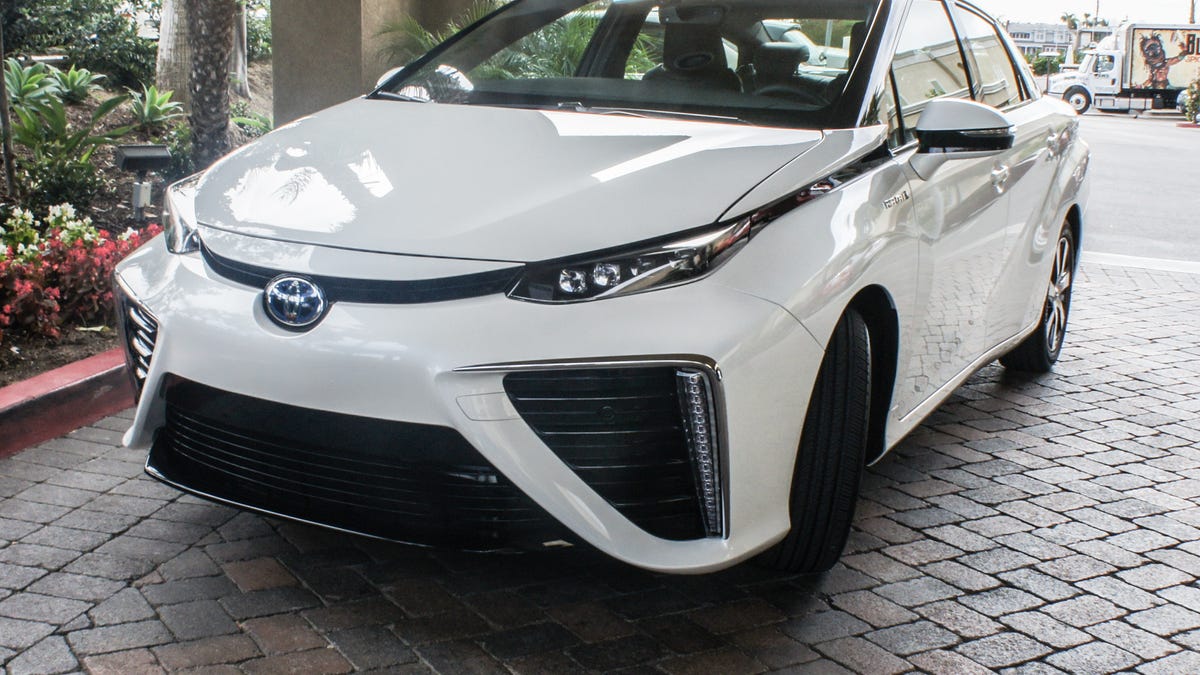Toyota kickstarting fuel cell future with patent release
At CES 2015, Toyota announced it would make 5,680 patents related to fuel cell drive systems available as a means to help other automakers build fuel cell cars.

LAS VEGAS -- In an effort to get other automakers building fuel cell-powered cars and help fuel suppliers open new hydrogen-fueling stations, Toyota announced today it would make 5,680 of its patents available for use on a royalty-free basis.
This announcement follows the release of the Toyota Mirai fuel cell car at the 2014 Los Angeles auto show. Fuel cells capture electricity released from the combination of oxygen and hydrogen molecules. That electricity can then power the drive motor in an electric car.
Although fuel cell cars can gather oxygen from the air, they need to carry highly pressurized hydrogen tanks. There is currently very little infrastructure to support filling hydrogen tanks around the country. Toyota's patent release could spur more automakers to build fuel cell cars, creating a demand for more hydrogen stations.
Toyota's press release notes that 1,970 of the patents have to do with the actual fuel cell stack, 3,350 cover fuel cell power control software and 290 relate to hydrogen storage tanks. An additional 70 patents cover hydrogen production technologies. These patents will only be offered to automakers and companies involved in hydrogen production and supply. Further, Toyota puts a stop year of 2020 on royalty-free use of the patents for automakers. Companies interested in using the patents will need to sign a contract with Toyota.
Toyota has become very bullish on hydrogen fuel cell technology in the past year, opting for it over pure electric car technology. Most production electric cars are costly and limited to about 100 miles range due to battery technology. The Mirai gets an estimated range of 300 miles from its onboard hydrogen tanks. Likewise, where battery charging times for electric cars are generally measured in hours, hydrogen tanks can be refilled in about five minutes, giving drivers an experience more similar to gasoline-fueled cars.
The patent release announcement is similar to an offer made by Tesla Motors CEO Elon Musk in June of last year. Musk vowed not to sue other companies for "good faith" use of any of Tesla's electric car patents. Similar to Musk's announcement, Toyota expects other companies using its patents to share their fuel cell technology.

